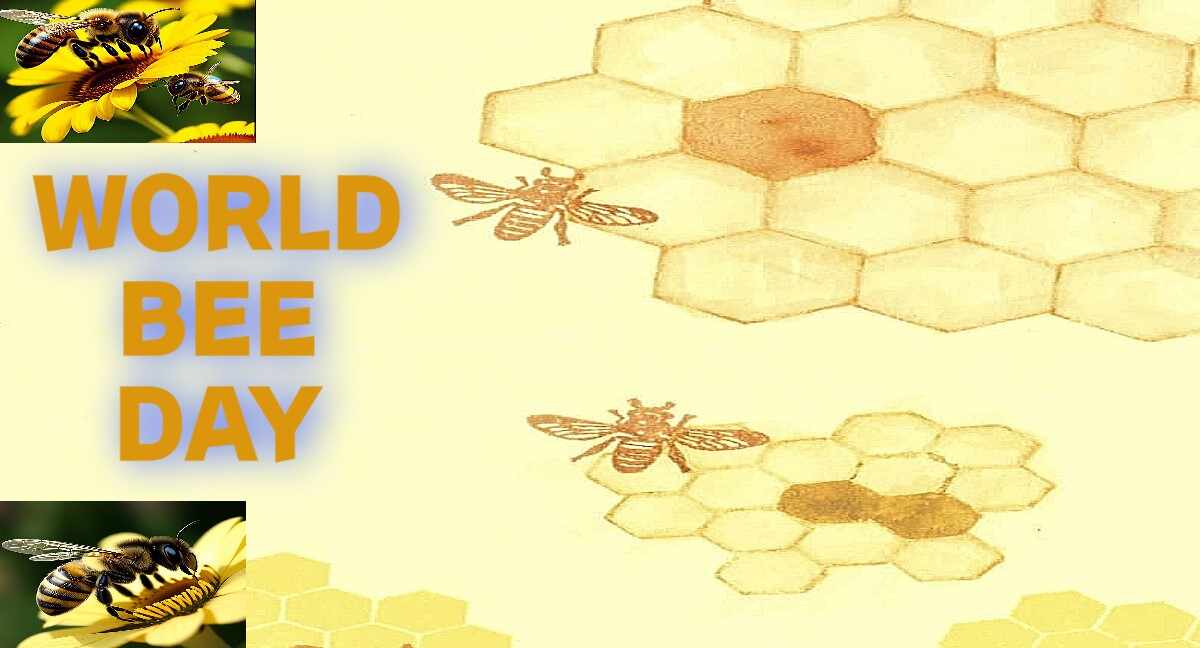Importance of Zoology: Zoology is the scientific study of animals. It encompasses a vast array of topics, from the anatomy and physiology of individual creatures to the behavior and ecology of entire populations. Zoologists explore the diversity of animal life, from microscopic invertebrates to gigantic mammals, examining their structures, functions, classifications, habits, and interactions with their environment.
What is Zoology?
Zoology (Greek., zoion = animal + logos = study) is the branch of life sciences that deals with the study of animals. As contrasted to botany, the science that is concerned with the plant organisms. Zoology and botany make up the science of biology (Greek., bios = life + logos = study) or the study of living things. Biology is the branch of science which investigates the origin, structure, functions and distribution of life in all its forms. Both zoology and botany seek to establish exact and quantitative principles for the basic organisation of living system.
RELATION and Importance OF ZOOLOGY
There are links between all the sciences. Though biology applies rules from physics, chemistry, and other physical sciences to explain its phenomena, biological principles are more than just an implementation of these laws. There are numerous biological processes that lack analogs in physics or chemistry. While many biological notions have mathematical equivalents, some do not. Nowadays, descriptions of general occurrences in the biological sciences are frequently limited to the absence of any quantitative implications. There are numerous levels of organization that biological systems can be represented by, not all of them have been reduced to clear concepts and provable theories. There are numerous fields of research that link biology to other sciences, including biochemistry, biophysics, and palaeontology. Synthesising the biological sciences with other sciences fields has been a notable trend for a while.
Branches OF ZOOLOGY
Zoology is such a vast subject that advanced workers in the field tend to specialise in one or
more of the subdivisions in which they can hope to become very proficient. The subdivisions are grouped according to two types of approach.
There are several branches are studied under Zoology according to subject matter
1. Morphology (Gr., morphe = form; logos = study). The study of the physical structure of organisms.
- External morphology. The study of external features of animals.
- Anatomy (Gr., ana = up; tome = cutting). The study of gross structure of the internal organs by dissection, that which can be seen with the naked eyes.
- Comparative anatomy. The study of gross structure emphasising similarities and differences between animals.
- Histology (Gr., histos = tissue; logos =study). The study of fine (microscopic) structure of tissues,which include the cells and their intercellularmaterials.
- Cytology (Gr., kytos = hollow vessel; logos= study). The study of the detailed structure of individual cells and their components.
2. Physiology (Gr., physis = nature; logos =study). The study of functional mechanism of
animals. The method of digestion of food in the human body and the way in which cells construct new protoplasm are typical physiological aspects of zoology.
- Cellular physiology. The study of internal functions of cells and their components.
- Comparative physiology. The study of the similarities and differences between functional mechanisms of different animals.
- Physiological chemistry. The study of animal functions involving chemical reactions.
- Systematic physiology. The study of the functions of organs and organ systems.
- Pathological physiology. The study of disturbances that occur in various functions of the organism during certain diseases.
- Clinical physiology. The study of the problems that come during fundamental task of
clinical practice. - Ecological physiology. The study of the peculiarities of physiological processes in
various species of animals in relation to the various conditions of their existence.
3. Taxonomy (Gr., taxis = organisation; nomos = law). The study of the classification of
animals into logical groups; the study of the evolutionary relationship of animals with one another.
4. Endocrinology (Gr.,endon = within; krinein = to separate; logos = study). The study of
endocrine glands and the hormone actions in animals.
5. Embryology (Gr., embryon = embryo; logos = study). The study of development of
organism from its beginning until it reaches a form of recognisable as the adult type. Since most animals have their beginning as single cells, embryology starts when the single cell begins divisions and continues with the formation of the various body parts until all the basic adult characteristics are present. This termination is at birth if the animal is a mammal, or at the hatching of the egg for most other forms of animal life.
6. Ecology (Gr., oikos = house; logos = study). The study of organisms in relation to their
environment. An example would be how a certain animal gets its food, what animals threaten it, how it protects itself from those animals and how it survives unfavourable climatic conditions.
7. Genetics (Gr., genesis = origin). The study of heredity and variations. It seeks to find the
explanation for similarities and differences between parents and their offspring. Since the basic unit of the heredity is gene, genetics involves a study of nature of the genes and chromosomes and how they control the growth and development of living organisms.
8. Evolution (L.,e = out; volvere = develop). The study of evolution is a study of how living
organisms develop inherited characteristics which better adapt them to their surroundings, the progress of these adaptive changes in the present and the course of such changes in the past. This study extends back into the possible origin of living things.
9. Palaeontology (Gr., palaios = ancient; onto = existing; logos = study). The study of life
as it existed in the past. It is closely related to the study of evolution. Palaeontology must be based on fossil remains of prehistoric animals, although certain other evidences are also used.
10. Zoogeography (Gr., zoois = animal; ge = earth; graphein = to write).The study of
distribution of animals on the surface of the earth. Subdivisions According to Animal Studied
11. Protozoology (Gr., protos = first; zoios = animal; logos = study). The study of one-celled
animals, the Protozoa.
12. Helminthology (Gr., helmins = worm ; logos = study). The study of parasitic worms or
helminths.
13. Parasitology (Gr., para = beside; sitos = foods; logos = study). The study of parasitic
animals.
14. Entomology (Gr., enton = insect; logos = study). The study of insects.
15. Malacology (Gr., malakos = soft; logos = study). The study of molluscs.
16. Ichthyology (Gr., ichtys = fish; logos = study). The study of fishes.
17. Herpetology (Gr., herpein = to creep; logos = to study). The study of amphibians and
reptiles.
18. Ornithology (Gr., ornis = bird; logos = study). The study of birds.
19. Mammalogy (Gr., mamma = breast; logos = study). The study of mammals.
Besides the above, the following branches concern with the practical applications of zoology:
20. Animal husbandry. The cultivation of domesticated animals, such as cattle.
21. Piggery. The cultivation of pigs.
22. Poultry. The cultivation of fowl.
23. Aquaculture. The cultivation of fish and other aquatic animals.
24. Apiculture. The cultivation of honeybees.
25. Sericulture. The cultivation of silkworms
IMPORTANCE OF STUDY OF ZOOLOGY
Zoology is a complex science having immense number of problems yet to solve. This alone
is a challenge to an enquiring mind, but there are also other motives for zoological study.
1. Man is the product of the biological heritage. He is a part of the animal kingdom and a
product of the evolutionary process. He is limited by the potentialities of living matter, for his roots are found in his biological background. No group of animals stands alone and isolated from other groups; all are linked in a sequence of life patterns, many of which have been displaced by other patterns in the long evolutionary process. Much information about man is obtained by studying other animals, for there is an underlying unity of structure and function throughout the animal kingdom.
2. The study of zoology is necessary for preprofessional work in medicine, dentistry, nursing, veterinary science, dietetics, agriculture, fishery, poultry, sericulture, apiculture, conservation of wildlife, sanitary engineering and many other fields. Medical sciences have profited from zoological discoveries, for concepts formed by studying one group of animals can be applied also to other groups, including man.
3. Zoology is of practical importance because of our dependence upon animals for many
products and uses, such as food, clothing, sources of drugs, subjects of experimentation, etc. Genetics, one of the branches of zoology, has been a factor in producing better domestic animals and even promises some progress in the improvement of human stock.
4. Zoological study furnishes the basis for psychological and sociological studies. At present there is a lively study of animal behaviour and its implications of human application, which is indicative of this interest. Animal sociology is rapidly becoming a branch of zoology in its own right.
5. An interest in living forms is basic. Primitive man followed the chase from necessity;
modern man does it as a relief from the tension of organised society and for the sheer love of hunting and fishing.
6. Animals influence man’s welfare in harmful ways. Parasites injure man and his domestic
animals. Many animals carry disease (vectors) and others themselves disease agents, such as those causing malaria. Destruction of crops and fruits by insect pests is a problem for agriculture everywhere.
7. All animals, including man, fit into a balance of nature. This is the web of life in which all plant and animal life fits into a pattern of environmental relationship.
8. The study of zoology is an excellent discipline for your mind. This is true for all sciences,
but it is particularly true of life sciences that have a unique role in man’s cultural pattern. Biological concepts influence your thinking in every realm of human interest. For instance, the concept of evolution or the transformation of organisms from one type to another during geological eras, has affected concepts in philosophy, psychology, sociology, religion and many other disciplines. One of the fascinating facets of biological study is the ever changing nature of its concepts. Much biological investigation may be done with practical objectives in mind, but a greater amount is motivated by curiosity and an urge to explain what lies beyond our present knowledge of life process.
9. There are aesthetic values in a study of biology as well. A student can expect to learn all
or even many of the names and characteristics of the vast variety of plants and animals but a knowledge of the structure and functions of the major types will greatly increase the pleasure of a stroll in the woods or an excursion to the sea shore. The average city dweller gets only a small glimpse of vast panorama of living things, for so many of them live in places from where they cannot easily see the sea, or parts of the earth that are not easily visited. Trips to botanical gardens, zoos, aquariums and museums will help give one an appreciation of tremendous variety of living things.





